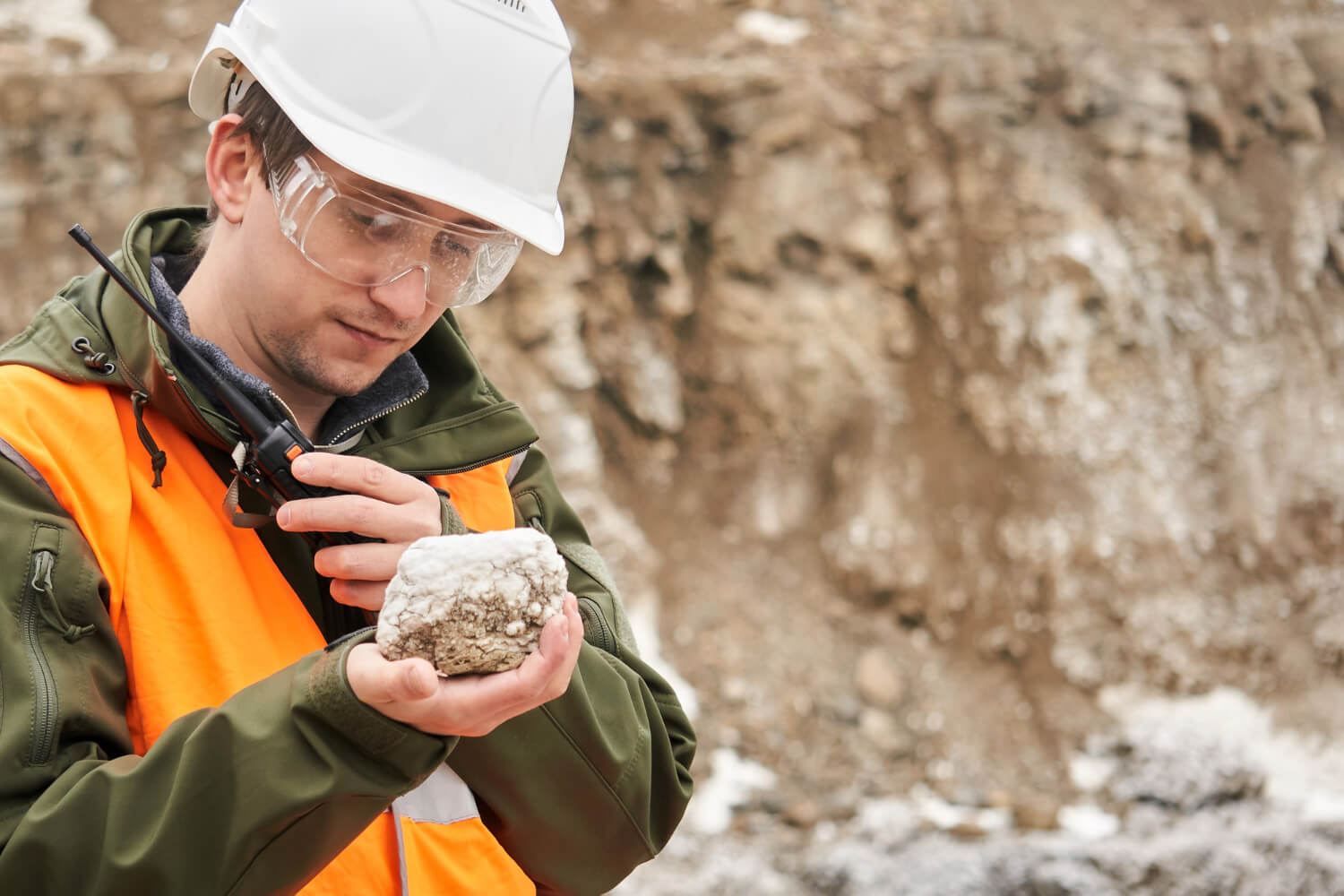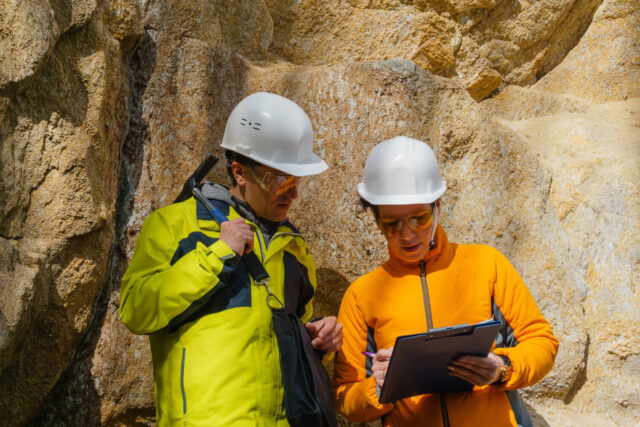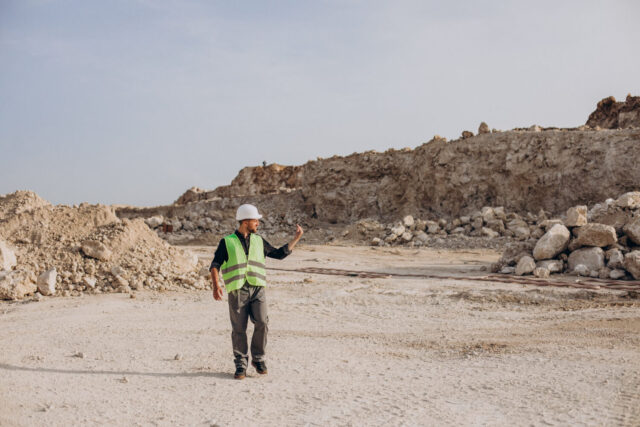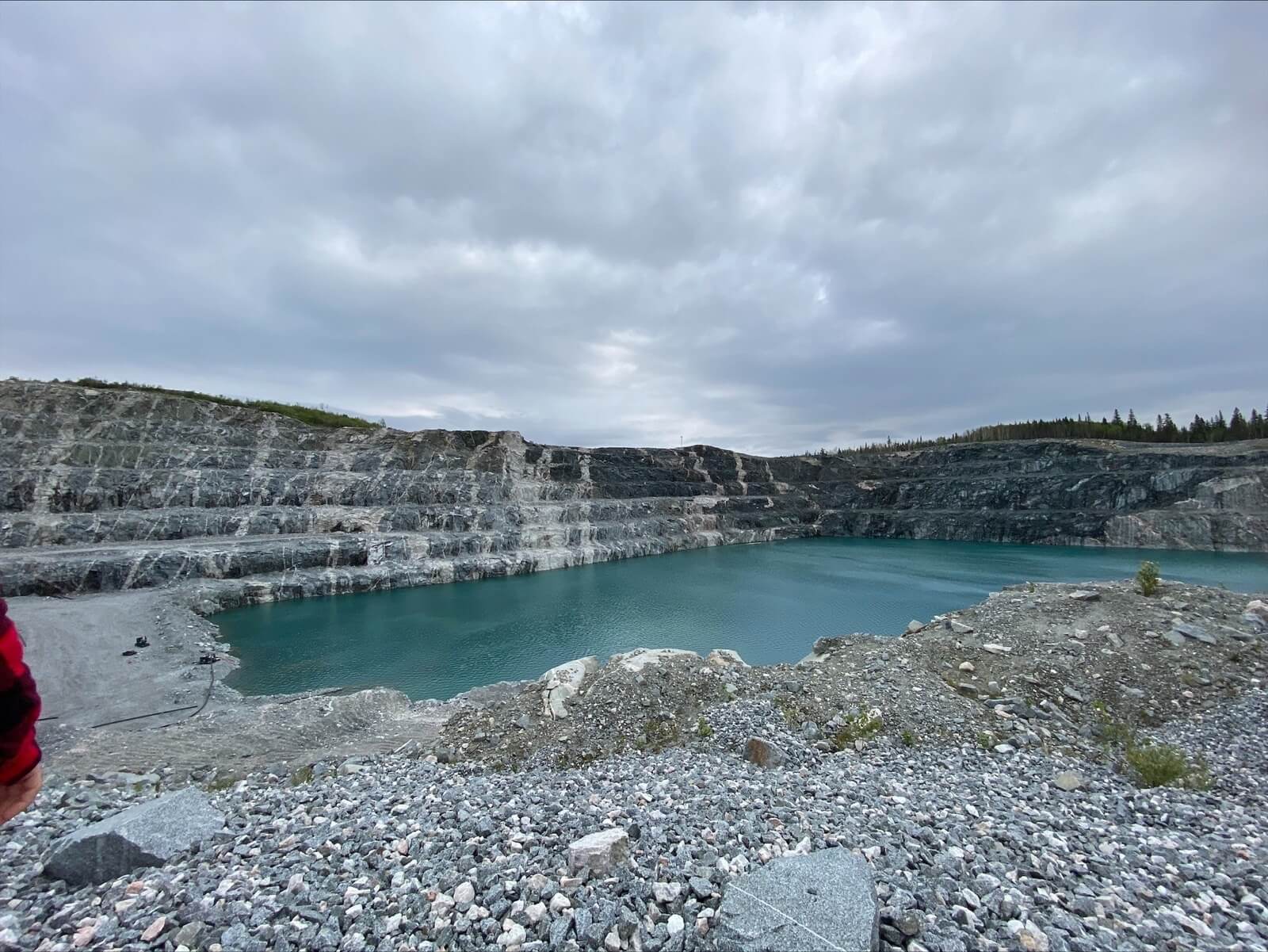Description
Full-time
Chibougamau
1290 hours

In this training program, you will learn to actively participate in various phases of geological and mining exploration. This includes field data collection, sample analysis, assessment of mineral resources, the use of geological tools and technologies, as well as contributing to the sustainable management of mineral resources.
This training is offered in French and English.
List of competency
Analyze the occupation
Act within the legal and ethical framework of the mining industry
Use digital ans computer-based technologies on the job
Characterize the major concepts governing gelogical assemblages and earth history
Take measurements on maps and plans (distances, directions, etc.)
Work isolated and remote wilderness conditions
Analyze the meineralogical and structural properties of rocks
Analyse methodes and procedures (sampling, database management)
Apply proper health and safety measures and act responsibly
Participate in mineral exploration drilling
Contribute to the preparation core drilling programs
Carry out geological and geochemical surveys
Contribute to evaluating the potential of a mineral deposit
Integrate the workplace and organisational culture
Do you have what it takes?
This program is designed for you if:

You have good physical endurance and you are flexible
You want to engage in sustainable mining practices
You have a passion for outdoor work
You are detail-oriented
Admission requirements and fees
Admission requirements
General admission requirements
To learn more about the general admission requirements and the required documents for an application to an Attestation of Collegial Studies (ACS) program, please visit the following page:
Fees
To learn more about the fees required for an application to an Attestation of Collegial Studies (ACS) program, please visit the following page:
Cours Grid
Theory
Practice
Personal work
Number of hours per week
271-1A3-FE
Mineral developments
2
1
1
271-157-FE
Principles and practices of responsible exploration
3
1
2
420-704-FE
Computer-based information tools
3
1
2
271-184-FE
Reading and interpretation of topographic maps
2
2
1
271-193-FE
Environmental principles and challenges
2
1
1
271-115-FE
Principles of mineralogy and petrography
2
3
2
271-1B4-FE
Reading geological maps
3
1
2
271-143-FE
Principle and practices of responsible exploration
2
1
1
271-233-FE
Sampling methods and protocols
2
1
2
271-203-FE
Occupational health and safety in the mining industry
2
1
2
271-194-FE
Life principles and practices in northern environments
1
3
1
271-153-FE
Prospecting and geological surveys
1
2
1
271-173-FE
Introduction to geophysical techniques
2
1
2
271-174-FE
Geographic information systems
1
3
2
271-1A4-FE
Geological mapping
2
2
3
271-163-FE
Geochemistry and mineral exploration
2
1
2
271-164-FE
Mineral exploration drillings
1
3
2
271-303-FE
Mining and geology software applications
1
2
2
271-314-FE
Mineral deposits
2
2
2
271-243-FE
Geological database management
1
2
2
271-183-FE
Planning and conception of an exploration project
2
1
2
271-334-FE
End-of-study project in gelology
1
3
3
271-308-FE
On the job training
0
8
1
After the ACS
On the way to the job market
Profession: technician in geology
Main tasks

Conduct geological, geophysical, and geochemical surveys
Examine underground mines (prospecting tours, exploration drilling, etc.)
Develop notes, sketches, geological maps, and cross-sectional profiles
Participate in the assessment and analysis of mineral resources
Prepare rock, mineral, or metal samples and collaborate with geologists to determine the best analysis methods
Conduct chemical and physical tests in the laboratory
Implement measures to protect the environment
Study and implement mining development, extraction methods, and mine drainage
Conduct preliminary checks on the quality of analysis results
You will be able to work in:

Mining companies (in exploration and operation)
Consulting and engineering firms
The public sector
Educational institutions
Manufacturing and construction companies
Public utility services






